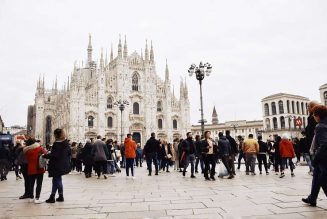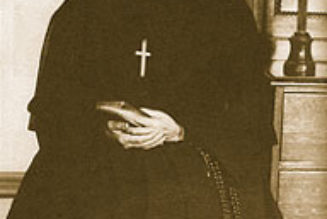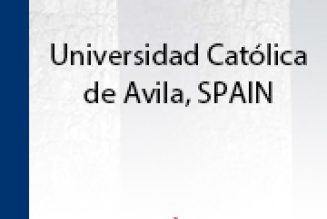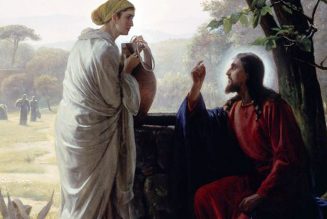, August 6, 2020

The wind is raging, the waves are taller than the boat. The night seems never ending, and even Jesus isn’t calming the storm. Do you hunker down and go where the wind takes you? Do you grit your teeth and wait for the end? Or do you step out into the storm?
That is the question the Gospel and readings ask us this Sunday, the 19th Sunday in Ordinary Time, Year A.
The Gospel begins with Jesus sending people off to be alone.
He sends the crowds away and sends the apostles across the lake. He needs to be alone to pray, and he needs his people to be alone to see how much they need him. They soon learn. A storm overcomes the apostles’ boat, and it is “tossed about by the waves” while “the wind was against it.”
Since Peter’s boat is a symbol of the Church, not only is this a personal lesson telling each of us to weather life’s storms — it’s a lesson for the Church and each of its members.
The Fathers of the Church say the storm represents two different forces. Persecution is a “mighty wave” that “rises against the boat of Christ,” says Augustine — and today Christians are persecuted as never before, being murdered for the faith all over the world. But St. Hilary points to a second force. We are also “tossed by the spirit of the antichrist, and by the troubles of the world.”
Pope Benedict XVI updated that for our time. “How many winds of doctrine have we known in recent decades, how many ideological currents, how many ways of thinking? The small boat of the thought of many Christians has often been tossed about,” he said, “flung from one extreme to another: from Marxism to liberalism, even to libertinism; from collectivism to radical individualism; from atheism to a vague religious mysticism; from agnosticism to syncretism.”
We have become the playthings of the storm, which for us is the deadly culture built by relativism. We have been driven far from the safe and sure path Christ set us on.
This terrible storm will last all night, with no sign of rescue from Jesus.
In the Gospel, Jesus doesn’t appear to the apostles until the “fourth watch,” between 3 and 6 am, at dawn or just before it. That means the Church has to fight the storm in the dark, alone. Even when he does show up, Jesus doesn’t quiet the storm. At first, he merely says, “Take courage, it is I; do not be afraid.”
This makes Peter the anti-Jonah. When Jonah sailed away to avoid his calling, he said, “Take me up and throw me into the sea; then the sea will quiet down for you.” When Peter himself wanted to avoid a call he crouched on a boat and said, “Go away from me, for I am a sinful man.”
God doesn’t want that kind of self-negation when he presents himself. What he wants is to hear what Peter tells him: “Lord, if it is you, command me to come to you on the water.”
This is what he wants to hear from Catholics today, too.
Think of the possible responses to the waves and wind, the persecution and dissent: We can hide from them, give in to them, or go to meet them. Hiding from them won’t make them go away, and giving in means being swept along by lies. Pope Benedict XVI said what all those ideologies have in common is that they make our own “ego and desires” the center of our life.
Giving in to the storm means putting our true hope in politics, and judging the Church harshly according to our political core beliefs. Or it means making money the center of our life, giving dribs and drabs to the poor and to the Church while lavishing money on ourselves to the point of debt. Or it means letting our doubts about the faith run wild without trying to pull them in.
Stepping out into the storm means praying, “Lord, if it is you, bid me come to you on the water,” then advancing step by step toward him.
It is often noted that the Gospel spells out where Peter goes wrong. “When he saw the wind, he was afraid,” and that’s when he started to sink. We shouldn’t dwell on disaster, either, obsessing about how powerful the enemy is, how dangerous the persecutors are, and how damaged the boat is. We shouldn’t spend our time sounding the depths of secularism and measuring the heights of the waves.
It is time give ourselves to Christ, recklessly, instead.
That’s what Paul does.
In the Second Reading, Paul, seeing his Jewish people reject Jesus Christ, the fulfillment of all they believe, says “I could wish that I myself were accursed and cut off from Christ for the sake of my own people.”
Last Sunday, he said nothing can separate him from Christ — “neither death, nor life, nor angels, nor principalities.” This week he says he would separate himself from Christ if it could help the Chosen People. Jesus also knew that nothing could separate him from the love of the Father — except his free decision to become forsaken and cursed, to become sin itself on the cross, to save his people.
We should be just as ready to give ourselves — as ready as Peter to face the storm, publicly show our faith in Christ, and bet everything on his power.
We can bet everything on Jesus, because he is God.
That “it is I,” that Jesus speaks from the storm in the Greek is “I am” – the name God gave himself from the burning bush. It is Jesus professing his Divinity. That “Lord” spoken by Peter is a profession of faith in his divinity, as is the last line we hear in the excerpt from Paul’s letter.
And as we know from the first reading, God is not the storm. He is the whisper that comes after the storm. God is not on the surface of things; he is the bedrock of reality. He is not part of the disorder of the ever-changing world that swirls around us; he is the fundamental truth that does not change.
And what he is whispering is “Take courage, it is I; do not be afraid.”
Image: Christ in the Storm on the Sea of Galilee, Rembrandt.
Tags: 19th Sunday of Ordinary Time Year A, prayer, Sunday Gospel, Sunday Readings
Never miss a post! Subscribe below to our weekly newsletter.









